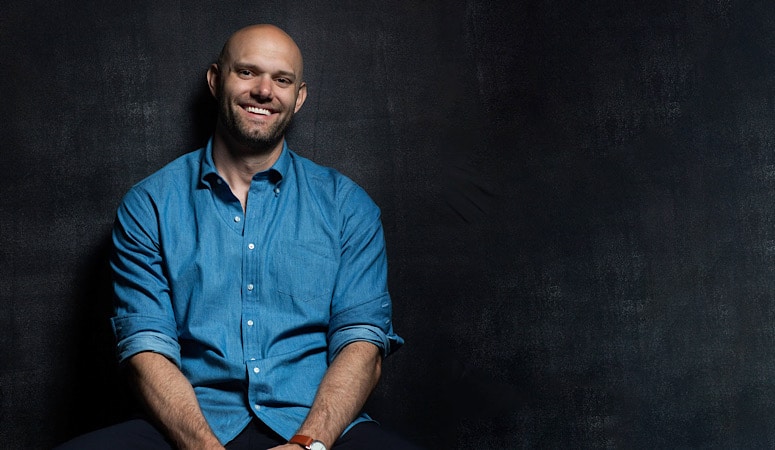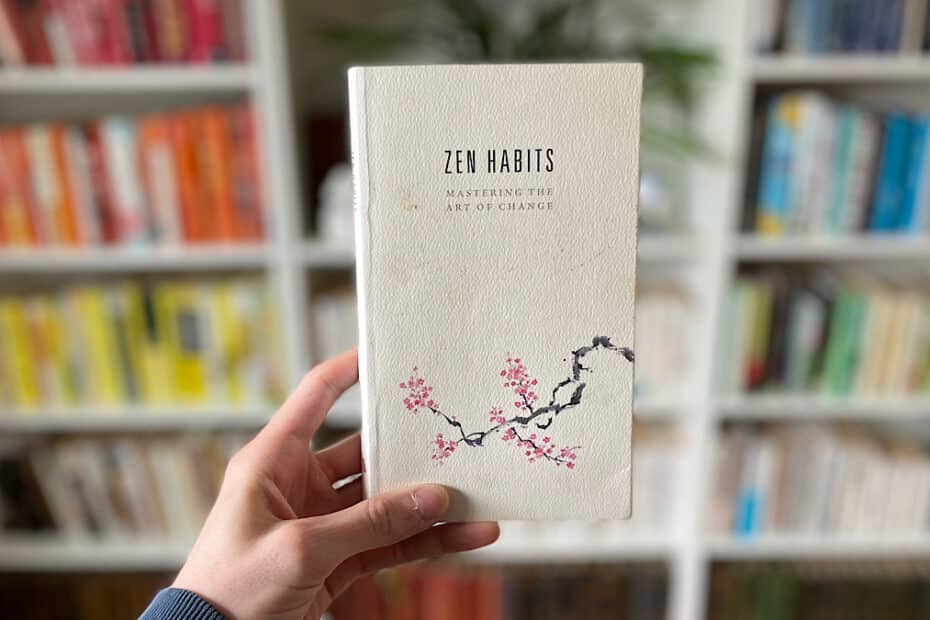“Everything is interconnected. Gratitude improves sleep. Sleep reduces pain. Reduced pain improves your mood. Improved mood reduces anxiety, which improves focus and planning. Focus and planning help with decision making. Decision making further reduces anxiety and improves enjoyment. Enjoyment gives you more to be grateful for, which keeps that loop of the upward spiral going. Enjoyment also makes it more likely you’ll exercise and be social, which, in turn, will make you happier.”
Daniel J. Siegel, The Upward Spiral
“Successful outcomes are never the result of a single choice. They are built up through good choices over time. A profitable business is never a choice, it is a series of choices. A fit body is never a choice, it is a series of choices. A strong relationship is never a choice, it is a series of choices.”
James Clear, Blog
“Every single qualification for success is acquired through habit. People form habits and habits form futures. If you do not deliberately form good habits, then unconsciously you will form bad ones. You are the kind of person you are because you have formed the habit of being that kind of person, and the only way you can change is through habit.”
Albert Gray, The Common Denominator of Success
“The key—if you want to build habits that last—is to join a group where the desired behavior is the normal behavior.”
James Clear, Blog
10 Dream Discovering Questions For Women [Excerpt]
Excerpt: The following is an excerpt from The Gift of a Year by Mira Kirshenbaum. In it she lays out ten dream discovering questions for women that might help reshape the focus of their lives. Enjoy!
Read More »10 Dream Discovering Questions For Women [Excerpt]
The Gift of a Year [Book]
Book Overview: Whether you think of it as a treat or a lifesaver, if you give yourself the gift of a year, it will change your life. This book will show you how to give yourself the gift of a year, piece by piece, step by step. As one woman put it, “Nothing could be simpler. For one year you do something that makes you feel great about yourself and your life.” If you’d like guidance, you’ll get everything you need here. If you need help seeing what you want to do with your special year, you’ll get that. If you need help seeing why you’re entitled to give yourself an entire year, you’ll get that. And if you need help with practical issues, like how to find time or ensure you get everything you want from your year, you’ll get that, too. This is a book about women and how we live our lives today. How we really feel about ourselves. How the way we live can drain the ‘you’ from your life, and how important it is to take care of yourself and to fill your life with more of what truly matters to you.
Buy from Amazon! Not on Audible…
Not enough time to read entire books? Check out Blinkist and get the key insights from popular nonfiction books in a fraction of the time. ‘Busy’ isn’t an excuse.
Post(s) Inspired by this Book:
- 25 Replenishing Quotes from The Gift Of A Year on Rest, Recovery, and Self Care
- 10 Dream Discovering Questions For Women [Excerpt]
- Mira Kirshenbaum Quote on Retreating Back So That You Can Keep Moving Forward in Life (Beyond the Quote 258/365)
- Mira Kirshenbaum Quote on Self-Care and How Important It Is To Give To Yourself (Beyond the Quote 230/365)
James Clear Quote on Taking Action and Why Today Might Be The Best Time To Act
“Today might be the best chance you have to take action. The longer you wait, the more deeply embedded you get in your current lifestyle. Your habits solidify. Your beliefs harden. You get comfortable. It will never be easy, but it may also never be easier than it is right now.”
James Clear, Blog
Beyond the Quote (229/365)
Your ability to get done what you know you need to get done, even when you don’t want to do get it done, only gets easier (ironically) the more you actually get it done. Did you catch that? In other words, action begets action. Consistent action taken at consistent times for certain tasks formulate habits. And habits make taking action easier. Aligning your life with this truth can help you maximize your efficiency in effort and expedite your path to success.
Read More »James Clear Quote on Taking Action and Why Today Might Be The Best Time To ActCharlie Munger Quote on Ideas and Why You Should Start Taking Them Seriously
“Take a simple idea and take it seriously.”
Charlie Munger
Beyond the Quote (224/365)
Reading 20 pages from a book every day is a simple idea. Writing in your journal before bed every night is a simple idea. Going for a walk every morning is a simple idea. Stopping eating after 8pm every night is a simple idea. Reaching out to and connecting with at least one friend every day is a simple idea. People have these types of ideas all of the time. The problem isn’t the ideas or even the simplicity of the ideas (although “complicated” can certainly be a problem). The problem is the taking of the ideas seriously.
Read More »Charlie Munger Quote on Ideas and Why You Should Start Taking Them SeriouslyKevin Kelly Quote on Habits and What Their Purpose Is In Our Lives
“The purpose of a habit is to remove that action from self-negotiation. You no longer expend energy deciding whether to do it. You just do it. Good habits can range from telling the truth, to flossing.”
Kevin Kelly, Blog
Beyond the Quote (215/365)
When you get a look at a day in the life of a high performing individual it can leave you feeling dumbfounded. I’m sure you’ve found yourself wondering, like me, how on earth they do so much in one day? What’s their secret? Is it something in their nature? Is it a learned skill? Is it 10 coffees?And while, for some, it might involve 10 coffees, the underlying secret that helps all high performing individuals perform to the best of their ability is their habits.
Read More »Kevin Kelly Quote on Habits and What Their Purpose Is In Our Lives“When we not only automate and routinize the trivial parts of life, but also make automatic good and virtuous decisions, we free up resources to do important and meaningful exploration. We buy room for peace and stillness, and thus make good work and good thoughts accessible and inevitable.”
Ryan Holiday, Stillness is the Key (Page 205)
“The first mistake is never the one that ruins you. It’s the spiral of repeated mistakes that follows. The problem is not slipping up; the problem is thinking that if you cannot do something perfectly, then you shouldn’t do it at all…”
James Clear, Blog
Charles Colton Quote on Uprooting Vices and Planting Virtues
“He that has energy enough to root out a vice should go further, and try to plant a virtue in its place.”
Charles Caleb Colton
Beyond the Quote (107/365)
How hard is it to dig up the roots of an old tree? Even trying to dig up the roots of a small tree or a bush can be incredibly hard. This is why, after a tree gets cut down, the stump is either left behind or it’s sawed down and the roots are simply left underground. Trying to take all of the roots up from a cut down tree simply isn’t worth the time and effort it requires in most cases.
Now, how hard is it to plant a seed for a new tree? Even planting a seed for the mightiest of trees is a breeze. There might be some variance in the specifics, but for the most part, you prep the land/ soil, dig a hole to the proper depth, place the seed in the hole, put the soil back on top of it, and make sure it gets enough water and sun and voila! You’re done.
Read More »Charles Colton Quote on Uprooting Vices and Planting Virtues“Before we can make deep changes in our lives, we have to look into our diet, our way of consuming. We have to live in such a way that we stop consuming the things that poison us and intoxicate us. Then we will have the strength to allow the best in us to arise, and we will no longer be victims of anger, of frustration.” ~ Thich Nhat Hanh, via Stillness is the Key (Page 34)
10 Sobering James Clear Quotes on Making Progress from Atomic Habits
Excerpt: Massive action leads to massive results—but it can also (often) lead to quitting. Read our James Clear quotes on making progress and adjust.
Read More »10 Sobering James Clear Quotes on Making Progress from Atomic Habits
16 Leo Babauta Quotes from Essential Zen Habits and How To Master the Art of Change
Excerpt: Lifestyle change is hard but it doesn’t have to be confusing. Read our 16 Leo Babauta quotes from Essential Zen Habits to find out more.
Read More »16 Leo Babauta Quotes from Essential Zen Habits and How To Master the Art of Change
“The bad habits we’ve formed are often useful to us because they help us deal with stress and boredom. Consider some of the bad habits that fit this bill: smoking, procrastination by browsing the Internet, eating junk food, drinking, addiction to TV or video games, compulsive shopping, biting nails. All of these habits fill a strong need: they are ways to cope with stress and/ or boredom. We have formed them as coping mechanisms, and they stick around because we don’t have better ways of coping. So if we replace them with healthier ways of coping, we get rid of the problems of these bad habits, and start getting the benefits of better habits.” ~ Leo Babauta, Essential Zen Habits (Page 152)
“Why quit cigarettes or all those sweets you’ve been eating? Isn’t life short and meant to be enjoyed? Don’t you deserve a treat? Yes, these are the justifications I gave myself too. And they’re a load of bull. Life is short, so why waste it on pure junk? Those things don’t make you happy—if anything, they made me less and less happy about myself. I’ve been happier once I gave up those habits and learned to be healthy and trustworthy to myself. Eating healthy food is a treat. Living smoke-free is pure bliss. But the biggest reason to change is that you love yourself. You don’t need to harm yourself to find happiness and contentment. Taking care of yourself is a form of self-compassion, and the sooner you start, the sooner you’ll feel good about how you’re loving yourself.” ~ Leo Babauta, Essential Zen Habits (Page 148)
“If you plunge into really cold water, you’ll be shocked, and you’ll hate it. But if you go into water that’s only a little colder than room temperature, it won’t seem too bad. After awhile, it’ll feel pretty normal. Then if the water’s temperature drops a little more, it won’t seem too bad, and soon that will become normal. You adjust. When it comes to changing your life, don’t plunge into the freezing water. You’ll soon get out of the water and be afraid of going in again. Instead, take a dip in slightly cool water. Make a very small change. Adapt to that, then make another. Gradually, through a series of small changes, you’ll see amazing progress.” ~ Leo Babauta, Essential Zen Habits (Page 126)
Steve Penny Quote on Embracing Unforeseen Detours Rather Than Fighting Them
“Life is full of unforeseen detours. Circumstances happen which seem to completely cut across our plans. Learn to turn your detours into delights. Treat them as special excursions and learning tours. Don’t fight them or you will never learn their purpose. Enjoy the moments and pretty soon you will be back on track again, probably wiser and stronger because of your little detour.”
Steve Penny
Beyond the Quote (46/365)
In his book, Essential Zen Habits, Leo Babauta shares a mental analogy that can help you stay on track towards accomplishing your goals—or better yet, not stay on “track” at all yet continue heading in the direction of your goals in a more flexible, effective manner. You see, for many people, the idea of a plan gets equated to mental “train tracks” that get laid out so that you, the train, can power forward in a smooth, straight line down the track towards your destination.
Read More »Steve Penny Quote on Embracing Unforeseen Detours Rather Than Fighting ThemLeo Babauta Quote on Using Mistakes As Feedback
“Use mistakes as feedback. They’re not signs that you’re a bad person or have no discipline. They’re signs that you need to adjust.”
Leo Babauta, Essential Zen Habits (Page 71)
Beyond the Quote (39/365)
In his book, Essential Zen Habits, Leo Babauta shares a simple story about mistakes that might help you shift your paradigm from looking at mistakes as catastrophic failures to seeing them as opportunities for indispensable feedback. Imagine you are walking across a pond using a small stone path. It’s not the most stable path and it zig zags across the water, but can none-the-less get you to the other side. If you wanted to get to the other side safely and dry, you would have to carefully place each step and make the proper balance adjustments along the way (I believe in you).
Read More »Leo Babauta Quote on Using Mistakes As Feedback![The Ten Dream Discovering Questions For Women [Excerpt]](https://movemequotes.com/wp-content/uploads/2020/09/IMG_6952-930x620.jpg)


